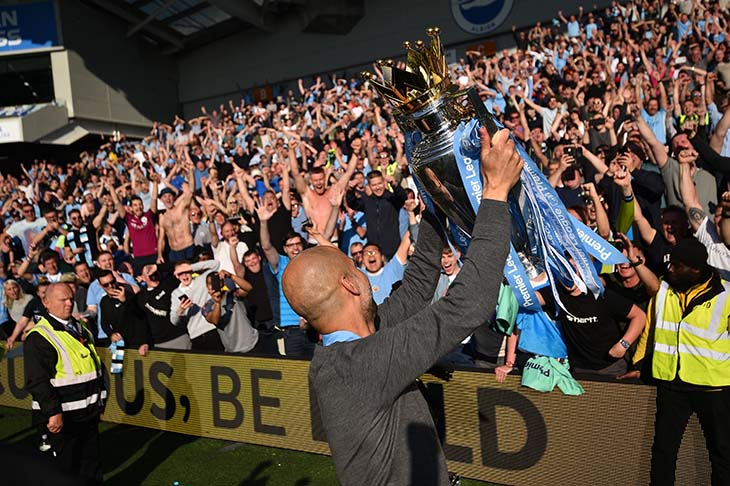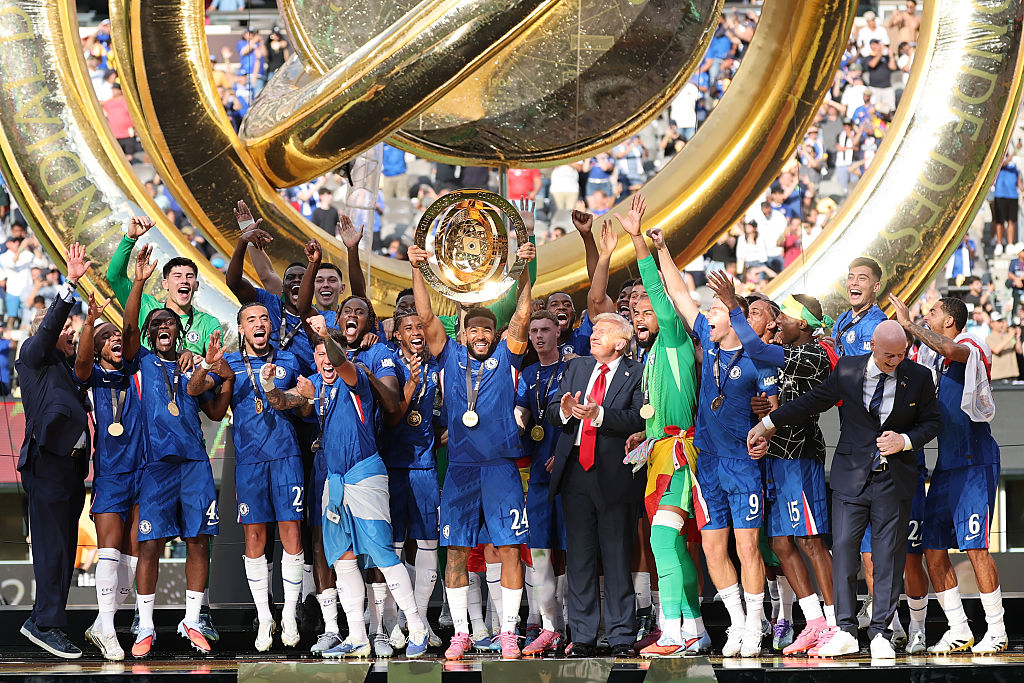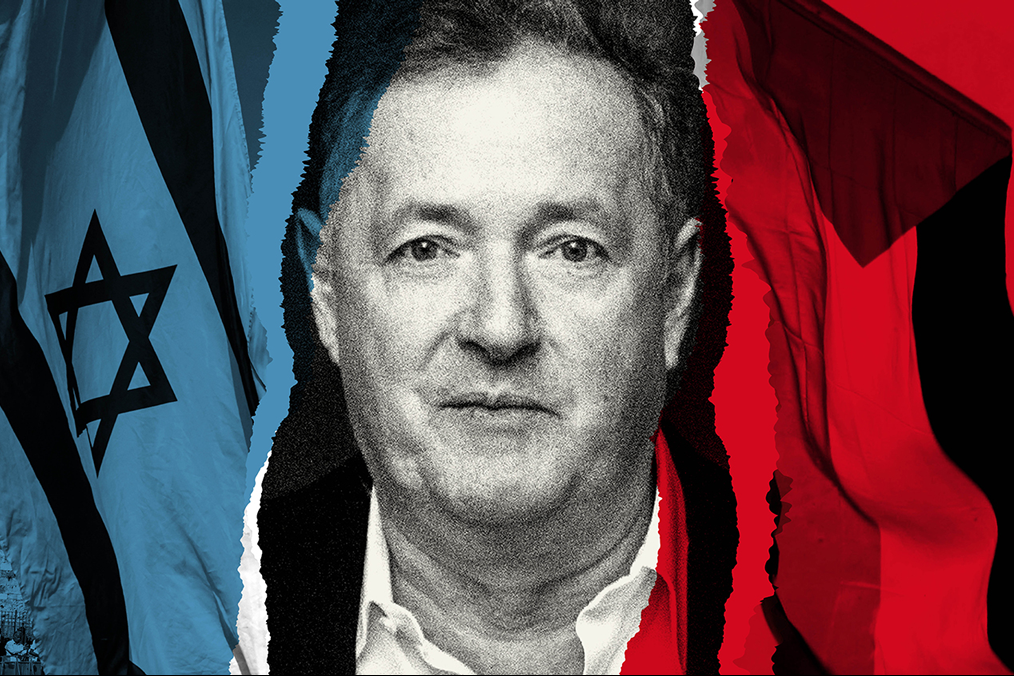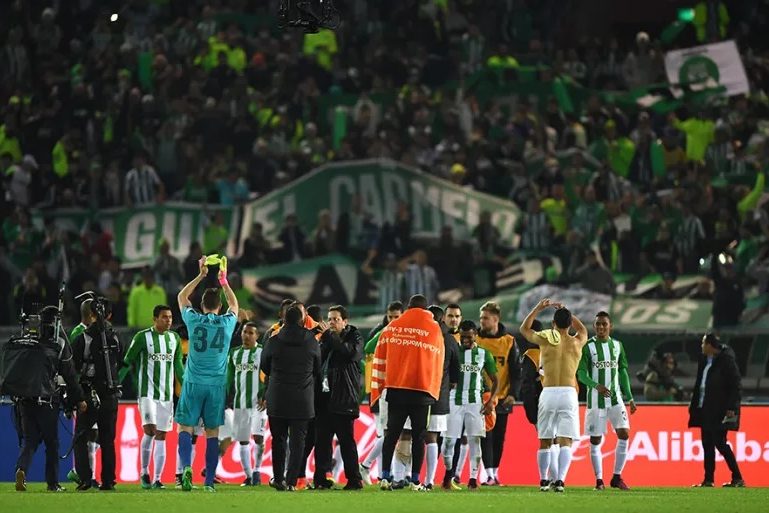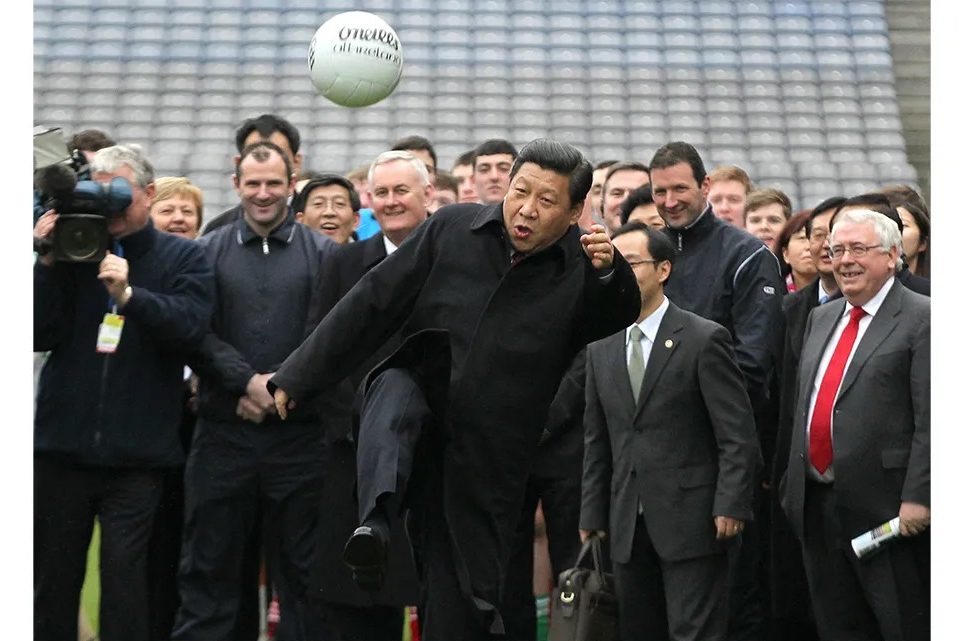It is always possible to tell the difference between a bunch of Manchester City fans and auditions for the latest Dolce & Gabbana commercial. And in that uproarious packed stand at Brighton on Sunday, there were clearly quite a few folk who hadn’t gone without a meal for some time. But by golly we were a happy, relieved bunch. City supporters have been used to getting kicked in the face at the last moment for so long that no one really celebrated till the result was beyond doubt. ‘Why are you so nervous, you’re 4-1 up?’ ‘I know, but there’s five minutes to go,’ is a joke made for City fans.
But how well behaved everybody was: the City stand stood and applauded when Brighton’s much-loved veteran skipper Bruno left the field for good with 10 minutes to go — even though few City supporters had a clue who he was. And all the Brighton fans stayed behind to cheer as the Premier League trophy was handed over. As they said, they knew they weren’t very likely to see the trophy again.
In the end, though, outside the thrilling duel for the title and the brilliance of the top two, it was a fairly routine Premier League season. Chelsea and Arsenal were erratic and frustrating, Manchester United utterly feeble, and Spurs valiantly hung on to their place for dear life despite the heroics in Amsterdam.
It’s the fans who have made this season; Liverpool’s home support is mythologized but it did the trick against Barcelona’s finest, who by the end looked as if they were treading water amid the Anfield wall of sound.
But look at the outrageous way the soccer authorities are treating the fans now. FA Cup Final tickets this weekend cost up to £145. This is despite the FA bringing in a massive amount from TV rights; they could almost have given tickets away for free and made up the shortfall from corporate sales. And the match is in the late afternoon, making it difficult to get a train back north afterwards.
It is the fans in the stadiums, shelling out vast sums each week, who play a huge part in creating the product that the FA and the Premier League can sell around the world. The English game would not have the same money-spinning appeal without them forming the backdrop that underpins the atmosphere, making the Premier League the most watched soccer on the planet.
And what of the ridiculous situation of two London teams and their fans having to travel thousands of miles to Baku for the game? There is no reason why Uefa couldn’t wait until it’s known who’s in the final to decide on a venue reasonably convenient for both teams and supporters. It would even add a bit of interest.
This article was originally published in The Spectator magazine.



